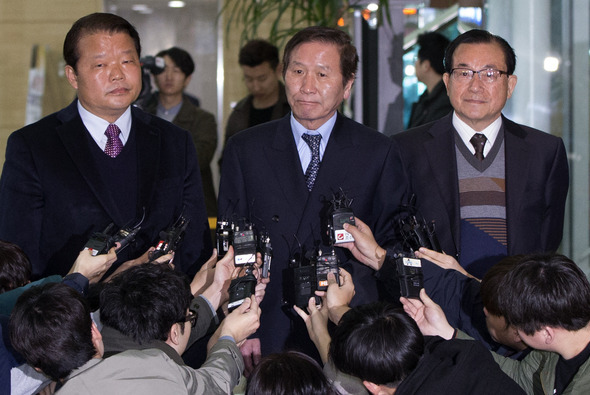 |
Jeong Ki-seop, chairman of the Corporate Association of Kaesong Industrial Complex takes questions from reporters at the Inter-Korean Transit Office in Paju, Gyeonggi Province, Mar. 18, before crossing the border to meet North Korean authorities. (Yonhap News)
|
CONTACT US

World Clock
Wednesday, March 18, 2015
South and North clashing over wage hike at Kaesong complex
Subscribe to:
Post Comments (Atom)


No comments:
Post a Comment